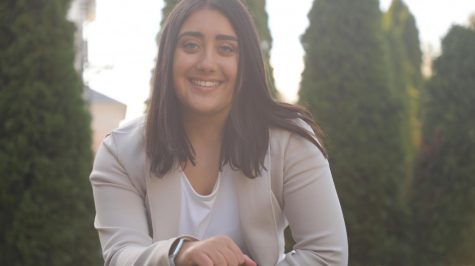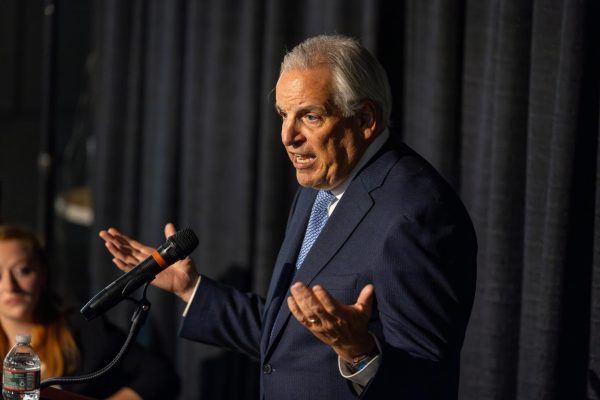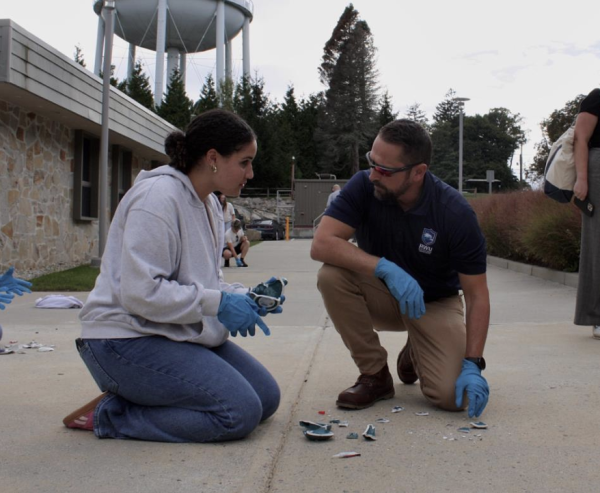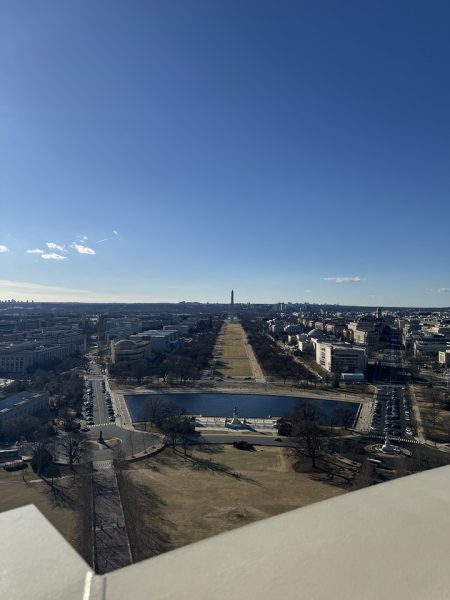Adrienne Wooster advocates for imprisoned scholars through Scholars at Risk Program
Across the world, scholars are being imprisoned as a result of their personal and academic undertakings. Senior Adrienne Wooster’s work with the Scholars at Risk Network (SAR) has demonstrated that advocacy efforts for those affected by this punishment can stem from a classroom in Bristol, to a conference in Washington, D.C.
The SAR Network helps scholars who are at risk of imprisonment or who have been imprisoned as a result of their academic and humanitarian efforts. Wooster has been working with SAR since 2016, starting as a member of the Advocacy Seminar and an advocacy intern, before transitioning into a Student Coordinator and member of SAR’s Membership and University Relations team.
The Advocacy Seminar course at RWU runs for three hours once a week, during which Wooster said much planning is done in terms of case updates and report planning. She also has biweekly Skype calls with SAR staff in New York, along with regular video conferences with all the student Advocacy Seminars. Outside of the classroom, Wooster has received globalized opportunities within the network, which include attending the SAR World Conference in Berlin, Germany.
The first scholar that Wooster ever had the opportunity to help was Hamid Babaei, who was pursuing a Ph.D. at the University of Liege in Belgium in 2013. He was arrested in Iran while on a return visit home to see his family, with eventual charges of “acts against national security” and a six year prison sentence.
Wooster and other seminar members petitioned his case on campus, sent signatures to the Iranian government and scheduled meetings with legislators to hopefully achieve medical furlough for Babaei. They also drew students’ attention to the visual/social media campaign, #FreeHamid.
“At RWU, we are privileged to have an environment that upholds academic debate and critical discourse,” she said. “This is not a reality for many higher educational institutions internationally, and indeed, attacks on academic freedom are frequent in the United States today. Hence, increasing awareness of academic freedom is evermore important.”
Wooster and two fellow student coordinators, Juliet Hulme and Kyla Yates, traveled to Washington, D.C. for SAR’S Student Advocacy Days on March 7 and 8. These three students played a huge role in planning the events for these days. They attempted to schedule meetings on Capitol Hill weeks in advance, and spent multiple hours Skyping and coordinating with student seminars to determine would would be able to attend.
During the trip, Wooster and her colleagues attended many kinds of meetings. Over 25 meetings had been scheduled with different officials, including the office of Senator Cory Booker and the Uyghur Human Rights Project. Wooster was also assigned to take professional photographs of students during break-out sessions and on Capitol Hill, along with her tasks of taking notes, facilitating seminar presentations and mock meetings.
While in D.C., Wooster also had the opportunity to hear Jewher Ilham, daughter of prominent Uyghur scholar Ilham Tohti, speak about her father’s case. Professor Tohti was a scholar of economics at the Central Minzu University in Beijing and an advocate for Uyghur rights. His website, Uyghur Online, functioned as a platform for Uyghurs and Han Chinese to form peaceful dialogues. Due to his site and scholarship, police arrested him on separatism charges and he was sentenced to life in prison.
Tohti is one of the scholars that Wooster has had the opportunity to advocate for, as Advocacy Seminar students spent time raising awareness for his case last spring. She acknowledged the impact of hearing about painful stories like these and trying to create change.
“Hearing Jewher and other individuals’ stories firsthand is an incredibly moving and humanizing experience,” she said. “It is so easy to become desensitized from the events that take place in our world. I like to take part in work that is bigger than myself and stay alert both intellectually and emotionally.”
Wooster values all of the time that she has spent working with SAR, both inside and outside of the classroom. She maintains that her work has contributed to a critical realization, which regards understanding that being enrolled in college does not mean that students are unattached to the world at large.
“Understanding the falsity of the assumption that college is somehow separate from the “real world” is, in my opinion, one of the most important lessons to learn in one’s educational experience,” she said. “College is, indeed, of the world, and I see it as a responsibility for myself to be a part of this world in which we are immersed.”






